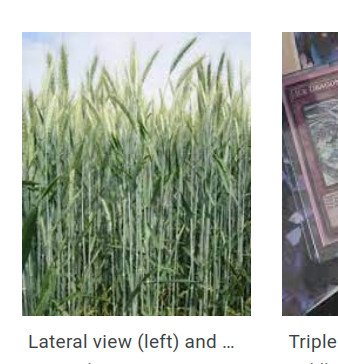I am not a native English speaker and I have sometimes referred to people as male and female (as that is what I have been taught) but I have received some backlash in some cases, especially for the word “female”, is there some negative thought in the word which I am unaware of?
I don’t know if this is the best place to ask, if it’s not appropriate I have no problem to delete it ^^
Female as an adjective is perfectly fine.
A female patient, a female politician, a female customer, etc. That’s the best way to refer to those.
What’s bad is using ‘female’ as a noun: "A female. "
In general, you just don’t use adjectives-as-nouns to refer to people. You don’t call someone “a gay”, “a black”, or “a Chinese”. That is offensive, and “a female” has the same kind of feel.
(there are exceptions to the above: you can call someone ‘an American’ or 'A German", but not “A French”. I don’t understand why - if you can’t feel your way, best just avoid it)
Now, you could get around it by calling someone “a female person” - except that we already have a word for “female person”, and that’s “woman”. And to go out of your way to avoid saying “woman” makes you sound like some kind of incel weirdo, and you don’t want that.
Interesting point with adjectives vs nouns.
‘a Frenchman’ would be more correct than ‘a French’. Because French is only an adjective, while American and German are both nouns and adjectives. But Frenchman is not gender neutral like German or American.
Could go with Francophone, but that’s any french speaking person so that includes canadians, africans, etc.
And, it would seem to make sense to go with Frank, but the Franks were originally germans, then expanded their territory to include France, and the name stuck there but not in their original territory, so is it really correct to refer to the French as Franks? Since no one does it, I would guess not.
includes canadians
Pffft barely, mon ami 😂
Québécois then.
except that we already have a word for “female person”, and that’s “woman”. And to go out of your way to avoid saying “woman” makes you sound like some kind of incel weirdo
Sounds more like a terf or “gender critical” person, but maybe that’s just my experience.
Fair.
You can soften “a black” or “a Chinese” entirely by adding “person” to the end of it. English is weird.
Right, because that makes it an adjective.
That’s werid because in french that’s not what we use in everyday life. We say “Un japonais” for example, not “Une personne japonaise” which kinda sounds unnecessary
Unless you’re a ferengi. /s
I think a big part that’s skeevy to me is that gender and sex are comparatively unimportant individual traits, referring to someone by their gender happens far more often for women and it’s a hold over of misogyny. There are much more interesting individual traits that identify us than our sex or presented gender.
My wife tells me that using as an adjective is just as bad and that I should always say “woman”, e.g. a woman politician and never a female politician.
I generally disagree and it seems fine and not disrespectful at all. But it’s somehat less up to me - I’m not a female.
I think that a good rule of thumb is: would you say “male doctor” or “male politician”? If not, is the professional’s gender relevant? Probably not, in which case it sounds pejorative to include it.
In some cases I would, and I would find it awkward to say “man doctor” or “man politician”. I don’t think it works at all, and I disagree with her that this really is the way most people try to avoid the naming.
But, kinda like pronoun; I guess I try to listen and be sensitive on things like how women and minorities saybtheyre sensitive about, including labels and etc.
Now, you could get around it by calling someone “a female person” - except that we already have a word for “female person”, and that’s “woman”.
I’m going to nitpick a touch. “Female person” includes girls. “Women” ecludes them.
“the suspect is a six foot, white male”
Sounds fine to me
I think that’s because the descriptors come after the noun in reporting. Similar to how documentation is done for other professions, like healthcare. If it’s out of the context of reporting, or other situations listed in the site below, it sounds grammatically strange or rude.
https://myenglishgrammar.com/lessons/adjectives-function-as-nouns/
Source: I’m in healthcare.
“the suspect is a six foot, white male"
think that’s because the descriptors come after the noun in reporting
No they don’t. The word “male” is the noun here.
Why did people upvote that?
Because it’s still acting as a descriptor rather than an identifier, despite playing the syntactic role of a noun instead of an adjective. It’s more about semantics in this case than syntax.
No it is playing the syntactic role of a noun. An object is a noun.
I know it’s playing the syntactic role of a noun, that’s what I said. But it’s playing the semantic role of a descriptor. The “thing” being described here is a suspect, one that is white and also male, as opposed to a male who is white and also suspected.
Syntactically, the word male was a noun. But semantically, it’s still just describing the suspect, rather than identifying the thing to be described.
Cops (ACAB) are not a good example for moral treatment of others.
Besides, this is basically jargon. That has its own set of rules.
Because the police never try to dehumanize “suspects” and “perpetrators”.
And that’s why I say “bruh”
I’m probably the only person to not use that word like a frat douche, I just like calling my guy friends bro and I tried calling my female friends bro and they didn’t find that funny so now everyone gets bruh’d
there are exceptions to the above: you can call someone ‘an American’ or 'A German", but not “A French”. I don’t understand why - if you can’t feel your way, best just avoid it
And yet here you are confidently expounding exactly how this works. Why, if you know you don’t understand, are you weighing in on this like you’re an authority on it?
Because fluent speakers of a language know the rules even if they don’t understand them. Why can you have a big green dog but not a green big dog? Because that’s the way the language works.
Tbh I think it’s just because it sounds bad phonetically, since “a Frenchman” or “an Englishman” are both acceptable as well, but “a French” or “An English” just sounds dumb. Of course you can only do that to white countries, don’t try it with China.
Now, you could get around it by calling someone “a female person” - except that we already have a word for “female person”, and that’s “woman”.
We did have a word that meant that and everyone knew it. But that word has changed into something else.
You okay buddy?
Female person doesn’t mean women.
The word has changed so it’s not correct to say that.
Unless you’re someone’s doctor, it’s almost never relevant to discuss someone’s sex. Gender is how we refer to people in most contexts, and when it’s important (e.g. discussing pregnancy) it’s not rude to make a distinction.
I’m talking about this
we already have a word for “female person”, and that’s “woman”
Except “woman” has always meant “adult presenting as female”
deleted by creator
“I had coffee with one of the males at work”
“There’s a male waiting for you downstairs”
“I need to see a male about a dog”
All of them would be weird as fuck, and yes, they’d sound demeaning. They don’t have the same weird-incel vibe, but that’s just an accident of culture.
Right. This is the best way to figure out if it sounds weird.
If you would use “man” then the word to use is “woman”. If you would use “male” then “female”.
So if someone asks is the doctor male or female? No problem. Even if they ask “is the doctor a male or a female?” Still no problem. Kinda odd but certainly not offensive.
The problem arises when someone says “men and females” that does sound weird and kinda insulting. As would “women and males”.
If you would use the word man, use woman.
If you would use the word male, use female.
Typical male behavior!
There’s no reason for you to feel attacked by the previous sentence, right?
Context is important. If I say: “Sexual dimorphism is when a species has two distinct sexes, male and female,” I dont think many would find that rude. Now, if I say “Im so sick of females telling me what to do” you might get some cocked eyebrows.
The way I explained it to a chronically single friend who used this word problematically all the time, and made him stop: Female is a word that describes gender and/or sex. My wife is female, and so is my dog. My wife is literally a woman, and my dog is literally a removed, so if I speak of my wife with the same sterile language that I speak of my dog, then my wife would easily conclude that I have no respect for her. I then asked him how the dating world was treating him, he said “bad”, and I said “of course, because you treat women like dogs”.
Never heard him say it again.
This is a good way of describing it for non-US or non-native speakers. The context is important. If you are speaking in an environment where linguistic sterility or pedantic exactitude are paramount, use female because that is the correct term. Things like studies; medical, statistical, anthropological, etc. If you are in a social situation, use a non-sterile term like woman for an adult, girl for a child, or some other non-pejorative colloquial term. If “chick” or “dame” or “babe” are acceptable to the girls/women of the social circle, go wild with them, if not, don’t. This is viable advice for any pronoun or colloquial reference, no matter the gender/sex of the people around. Their emotions matter.
Also, if you are speaking with physists about physics, object pronouns become appropriate because no matter how offended people get, they have a volume and warp spacetime, so therefore they ARE objects. 🙃
It really depends on the context. When used as an adjective, it’s fine. For example, the sentence “My female coworker has brown hair.” is correct. However, when it is used as a noun, it can be dehumanising. For example: “A female at my workplace has brown hair” is dehumanising. It can be used as a noun when talking about non-humans (“After mating, the female will lay her eggs.”) or in medicinal context when referring to people with uteruses.
Not English native here, please don’t be too harsh for asking this.
I’ve heard male very often as noun, and doesn’t seem to have a negative reaction. Is one “generally” considered worse to use than the other?
A lot of the reason why “Female” has a bit of a negative slant, is because of the kinds of people/communities that overused the word.
Those groups used female as a way to say that women are only useful as somewhere to put your dick. There didn’t really seem to be a group using male in a dehumanizing way, so it doesn’t really have the same negative feeling.
Kinda like how if someone just comments “Jew” on a post it can feel negative, but if they say “Canadian” or “Bulgarian” it feels neutral.
Can you give some examples?
However, when it is used as a noun, it can be dehumanising. For example: “A female at my workplace has brown hair” is dehumanising.
The fuck are you talking about?
Using human nonspecific terminology to describe women is dehumanizing. They are women, not “females”. The only people who use “female” as a noun mean it the same way they might call a woman a “hoe”. It’s a word you use when you deliberately want to minimize the existence of another person. Literally referring to a woman like she is an object, or livestock…
Using human nonspecific terminology
to describe womenis dehumanizing.What an oxymoron if I’ve ever heard one.
Of course you think “women aren’t human” is a funny joke…
Touch grass, incel.
Ass u me much? I never said that ya Qanon crazy fuck
Sorry to tell ya I live on a farm, if anyone says that they are just projecting and should prolly go touch grass themselves
The fact y’all think calling a woman a female is dehumanizing is fucking pathetic. Go out and get a life
I get that you’re being practical here. You’re not technically wrong, and the people who are disagreeing with you really are arguing points of nuance.
But they aren’t wrong either. That nuance matters in certain contexts.
You can pick this hill to defend. Or you can learn something that you didn’t know about the people in your online community, and probably your IRL community too.
Embrace learning something new. It will almost never be a waste of your time.
Ah, I understand now. You think that “human nonspecific terminology” and “dehumanizing terminology” are oxymoronic. Let me help clarify this for you with a lesson in reading comprehension:
“Human nonspecific terminology” refers to terminology that isn’t used specifically to refer to humans. For example, nouns like “male”, “female”, “subject”, or “specimen” can refer to humans, but they can also apply to things like plants and animals. Casually using these terms socially is generally thought of as dehumanizing and disrespectful.
This is opposed to respectful human terminology like “man”, “woman”, “participant”, or “person” that almost exclusively refer to humans.
If a man thinks of himself as a man, but refers to women as “females”, people tend to assume he has less than an acceptable amount of respect for women, since he uses less human terminology to describe them than he would to describe himself.
This is why I preferred math over English classes.
That you shouldn’t call a human woman “a female”?
It’s super context dependent. Asking “How do I ask a woman out?” Vs “How do I ask a female out?” say very different things about you.
It’s kind of like the difference between talking about people who are black and referring to someone as “one of the blacks”. It’s subtle, but the latter is objectifying where as the former is descriptive.
It’s even more subtle than that. We’ve defeated most actual injustice in our society, and now people are scraping the bottom of the barrel to find injustice to fight against.
I have some bad news to tell you about capitalism
hmmm, that’s an assessment I can’t get behind, lol
This is the dumbest thing I’ve read this year.
Using it as an adjective in some cases is fine, never use it as a noun, unfortunately due to assholes using it that way it now has a negative conotation.
exactly this
Mostly just by association. It sounds very incel-y.
And the infamously misogynistic Ferengi.
Humons just don’t understand Ferengi culture.
It’s an adjective not a noun when talking about people. The sort of people who use it as a noun tend to be misogynists and so when people do it they’re often unknowingly writing with a misogynist accent if that makes sense.
“I have a female friend.” (As in “I have a friend that’s a woman.”) “I’ve talked with a female today.” (As in “I’ve talked with a woman today.”)
The first one is fine, because isn’t using the word as an adjective. The second one is derogatory, because it is being used as a substantive.
So stating a fact is derogatory?
Where the fuck do y’all get your information?
Found the incel lol
Considering I read the initial statement to my mom (60) and she said wtf?
Y’all just assume. Hope ya don’t go through life with that kind of outlook you will never make friends
“My mom said it’s OK” is just telling on yourself, my dude.
You’re great at twisting words to suit your narrative.
Literally said what the fuck is wrong with these people. And I concur.
Went into this knowing exactly what I would be dealing with, a bunch of idiots who have never been told to shut the fuck up.
Lmao this incel can’t stop commenting in here 😂
When used as a noun they’re how you refer to non-human animals so when you use them for people it sounds that you don’t think men/women are human
Some people think it’s dehumanizing. As an adjective, it’s more acceptable (“There is a female nurse”); it sounds a bit off-putting as a noun (“The nurse is a female”). There are some people who don’t like to use it at all, and that leads to awkward things like using “woman” as an adjective (“There is a woman nurse”)!
You’re probably okay as long as you stick to using it as an adjective, but you still might offend some people.
male/female usually used for animals, for humans usage of man/woman would be the right way
I disagree. Male/female is used plenty with humans, but it tends to be used in a more clinical or ‘objective’ manner, such as in legal documents, autopsy reports, police suspect descriptions, things of that sort.
I think the use of, e.g., “Look at those four males over there”, it has a bit of a connotation of separation of the personhood of the people involved. A man is a living, thinking being; he is worthy of dignity, and he has a soul. A ‘male’ can almost be called an ‘it’: it has a characterization of cold, scientific classification.
Don’t bring science to feminism!
Humans are animals though. Why do they get offended when they get reminded of that fact? Smh, this is why us members of the galactic community don’t like your species too much. /S
Kinda like how ignorant people only thing humans have consciousness while more and more studies show capability in many animals
Maybe that’s how you animals in your “galactic community” operate, but be careful… a lot of people in these parts eat animals for breakfast. For your own self preservation you might want to come up with some reasons why you’re more than just an animal before we get to barbecue season.
Alright. Time to change living conditions to ‘livestock’. I think some of you do it in your space simulator games. /S
This is what I said to someone who asked a very similar question about the same thing a while back:
‘Females’ is, effectively, a ‘technical term’ you might say, that isn’t used in normal conversation. It’s used specifically in situations where distance from the subject being discussed is intentional. It is the sort of language used in police reports, medical reports and the like…when it’s even being applied to humans at all. Its use is perhaps more common referring to animals; it’s the sort of terminology you’d expect to hear in a nature documentary.
The people trying to push its use are intending to make the subjects - women - sound ‘other’ and separate and alien by referring to them as ‘females’. Not everyone who is picking up this terminology intends it that way, but the connotations are unavoidable because of how language works in common use, and therefore if you don’t intend it that way, you badly need to be made aware of it so you can stop.
The problem is using it when “woman” is the correct word. If you say stuff like “the female at the customer service desk doesn’t know how to do her job” then you run the risk of being called an incel or ferengi, though if you don’t seem like a sexist, churchy, or maga-hatter, then you can probably get away with it by not sounding like a native speaker. Or just avoid all that like me and don’t talk to people because social interactions of any kind are mentally draining.
















